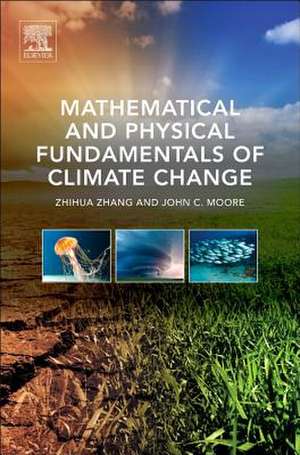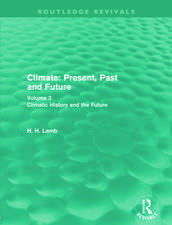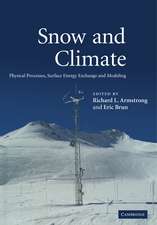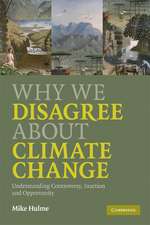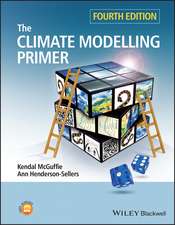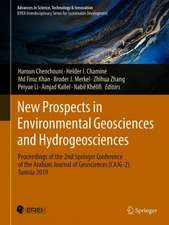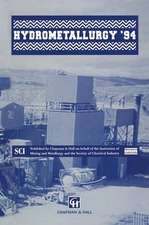Mathematical and Physical Fundamentals of Climate Change
Autor Zhihua Zhang, John C. Mooreen Limba Engleză Hardback – 25 noi 2014
- Includes MatLab and Fortran programs that allow readers to create their own models
- Provides case studies to show how the math is applied to climate research
- Online resources include presentation files, lecture notes, and solutions to problems in book for use in classroom or self-study
Preț: 418.94 lei
Preț vechi: 572.28 lei
-27% Nou
Puncte Express: 628
Preț estimativ în valută:
80.18€ • 83.40$ • 67.20£
80.18€ • 83.40$ • 67.20£
Carte tipărită la comandă
Livrare economică 07-21 martie
Preluare comenzi: 021 569.72.76
Specificații
ISBN-13: 9780128000663
ISBN-10: 012800066X
Pagini: 494
Ilustrații: 20 illustrations
Dimensiuni: 152 x 229 x 27 mm
Greutate: 0.83 kg
Editura: ELSEVIER SCIENCE
ISBN-10: 012800066X
Pagini: 494
Ilustrații: 20 illustrations
Dimensiuni: 152 x 229 x 27 mm
Greutate: 0.83 kg
Editura: ELSEVIER SCIENCE
Public țintă
Upper-level UG/Grad Students, post-docs, researchers in meteorology, climatology, oceanography, earth science and environmental scienceCuprins
Preface: Interdisciplinary Approaches to Climate Change Research1. Fourier Analysis2. Time-Frequency Analysis3. Filter Design4. Remote Sensing5. Basic Probability and Statistics6. Empirical Orthogonal Functions (EOFs)7. Random Processes and Power Spectra8. Autoregressive Moving Average (ARMA) Models9. Data Assimilation10. Fluid Dynamics11. Atmospheric Dynamics12. Oceanic Dynamics13. Glaciers and Sea Level Rise14. Climate and Earth System Models
